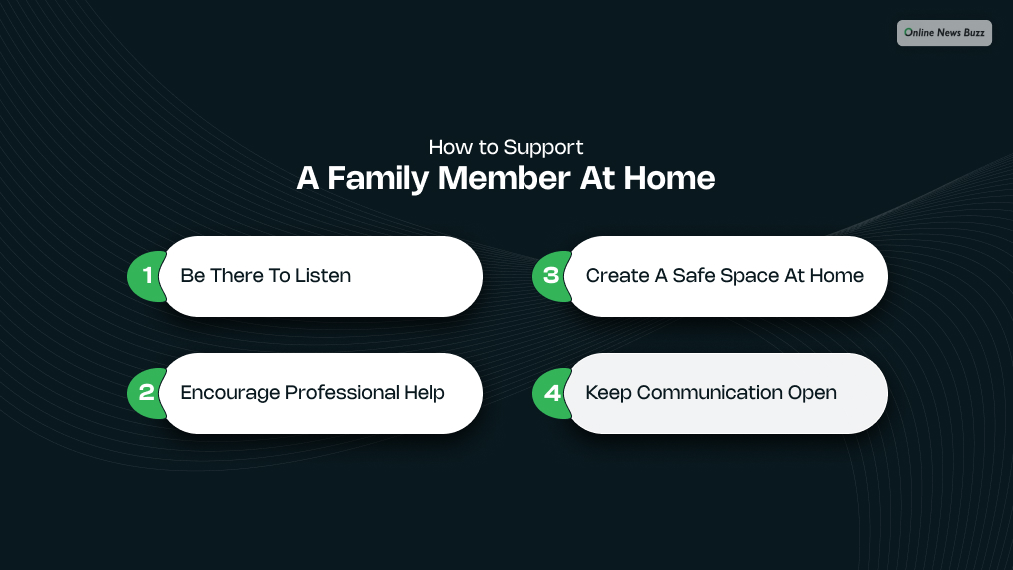
For many Americans, mental health challenges are a part of life. The COVID-19 pandemic has caused an even steeper climb in the number of adults experiencing mental or behavioral health symptoms.
The Centers for Disease Control and Prevention (CDC) published timely survey results in August 2020. Nearly 41% of surveyed adults said they had suffered at least one adverse mental or behavioral health symptom. More than 26% said they had suffered a trauma- or stressor-related disorder due to the pandemic.
Now more than ever, we all need to know where to turn when facing mental health challenges. The good news is that there is help. We simply have to know where to find it.
Healthcare Providers:

A healthcare provider probably seems like an obvious place to turn for help. Nonetheless, some people are reluctant to reach out when they are in trouble. Perhaps that’s because they anticipate hearing the same advice they’ve heard before.
Which healthcare provider you turn to depends on the challenges you’re experiencing. But don’t overlook assistance that may come from providers you haven’t consulted in the past. It might be time to explore some new options.
For example, perhaps you’re experiencing side effects from an antipsychotic medication and want to know more about Seroquel withdrawal. Rather than just consulting the doctor who prescribed it, seek out providers who specialize in medication tapering. There are multiple ways to address medication issues that may be causing you anxiety.
Of course, your primary care doctor should be aware of all your health conditions and medications. That can be important because some physical conditions can be misdiagnosed as mental health conditions. Others may change over time.
If you are already seeing a mental health professional, it’s wise to talk to them if your condition worsens. Don’t overlook online healthcare providers, either. They offer access from anywhere and are often available 24/7.
Hotlines and Helplines:
Anyone in an immediate crisis should not hesitate to dial 911 for local emergency services. There are also hotlines, helplines, and texting opportunities to get help and advice quickly and privately. The National Institute of Mental Health maintains a list of them for easy reference.
The National Suicide Prevention Lifeline, Crisis Text Line, and Veterans Crisis Line are three with 24/7 access to counseling and referrals. The Disaster Distress Helpline takes calls during any natural or human-caused disaster, including COVID-19.
Don’t overlook the mental health resources your employer may provide. Many offer employee mental health counseling online or via phone as a benefit of employment.
Various federal agencies can also help you locate affordable mental health treatments. Among them are the Substance Abuse and Mental Health Services Administration and the Centers for Medicare and Medicaid Services.
These phone and text-accessible services aren’t just for people experiencing a mental health crisis. They are also trained to handle calls and texts from people worried about family members and friends.
Advocacy Organizations:
Advocacy organizations devote all their resources to a single cause. They learn everything about that cause and keep pace with new developments. Advocacy organizations may be the experts to consult when you need basic information.
There are many mental health-related advocacy organizations you can tap into. Some are general in nature, such as the National Alliance on Mental Illness.
How to Support A Family Member at Home

Supporting a family member who’s dealing with mental health challenges can feel overwhelming at times. Yes, we understand how difficult it can be when you cannot provide them with the right solution!
But you don’t have to be a professional to offer meaningful help.
Often, it’s the small, everyday things that make the biggest difference. Here are some simple ways you can provide support at home.
Be There to Listen
Trust me, that is all they want
One of the most powerful things you can do is simply listen. Let your family members talk about how they’re feeling without judgment.
Avoid trying to “fix” their problems right away. Sometimes, all someone needs is a caring person to hear them out.
If you’re unsure how to respond, try saying, “I’m here for you,” or “I may not have all the answers, but I’m listening.” Those words can mean a lot.
Encourage Professional Help
If your loved one hasn’t already seen a mental health professional, encourage them to do so. Offer to help them find a therapist, counselor, or support group.
Do not force them! It is always better for them to seek our help when they wish to. Then only the sessions are going to be effective!
It might even help to offer to go with them to their first appointment just to give them that extra source of support. In fact, the important thing is to let them know they don’t have to face their challenges alone.
Create a Safe Space at Home
Your home environment plays a big role in how someone feels day to day. Ensure your family member feels safe, comfortable, and supported at home.
This could be as simple as having a quiet space where they can relax. Or helping them set up a routine that brings a sense of stability. A little effort can go a long way in making them feel more secure.
Who knows, you could be creating the exact space in which they are finally to open up and share their story!
Keep Communication Open

Let your family members know that they can come to you whenever they need to talk. S
Sometimes, mental health struggles can cause people to withdraw, so it’s important to keep the lines of communication open. The worst thing you can do is show them your impatience and that you are tired of dealing with them!
Yes, it can be difficult, but your patience is what will help them come out of their shell.
So, check-in with them regularly, even if it’s just to ask how their day is going. That consistency can provide reassurance.
Remember, you’re not expected to have all the answers. Just being there, showing you care, and encouraging them to seek help when necessary, can make a world of difference.
You’re helping them take important steps toward feeling better, one day at a time.




























